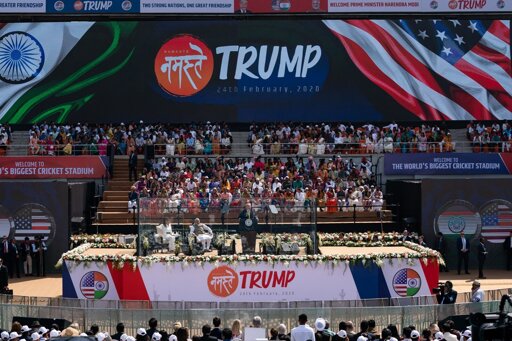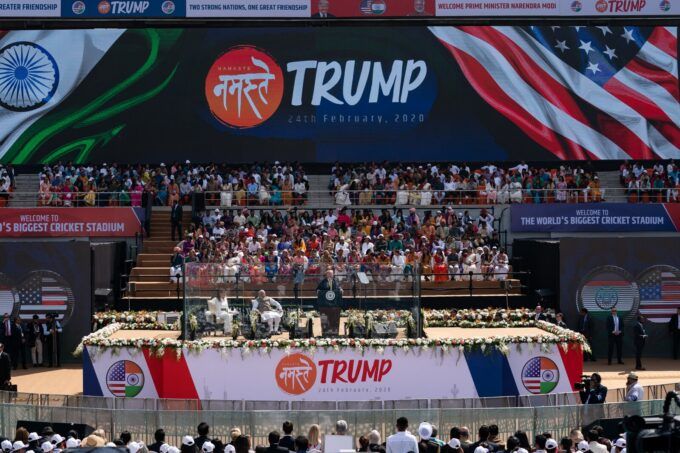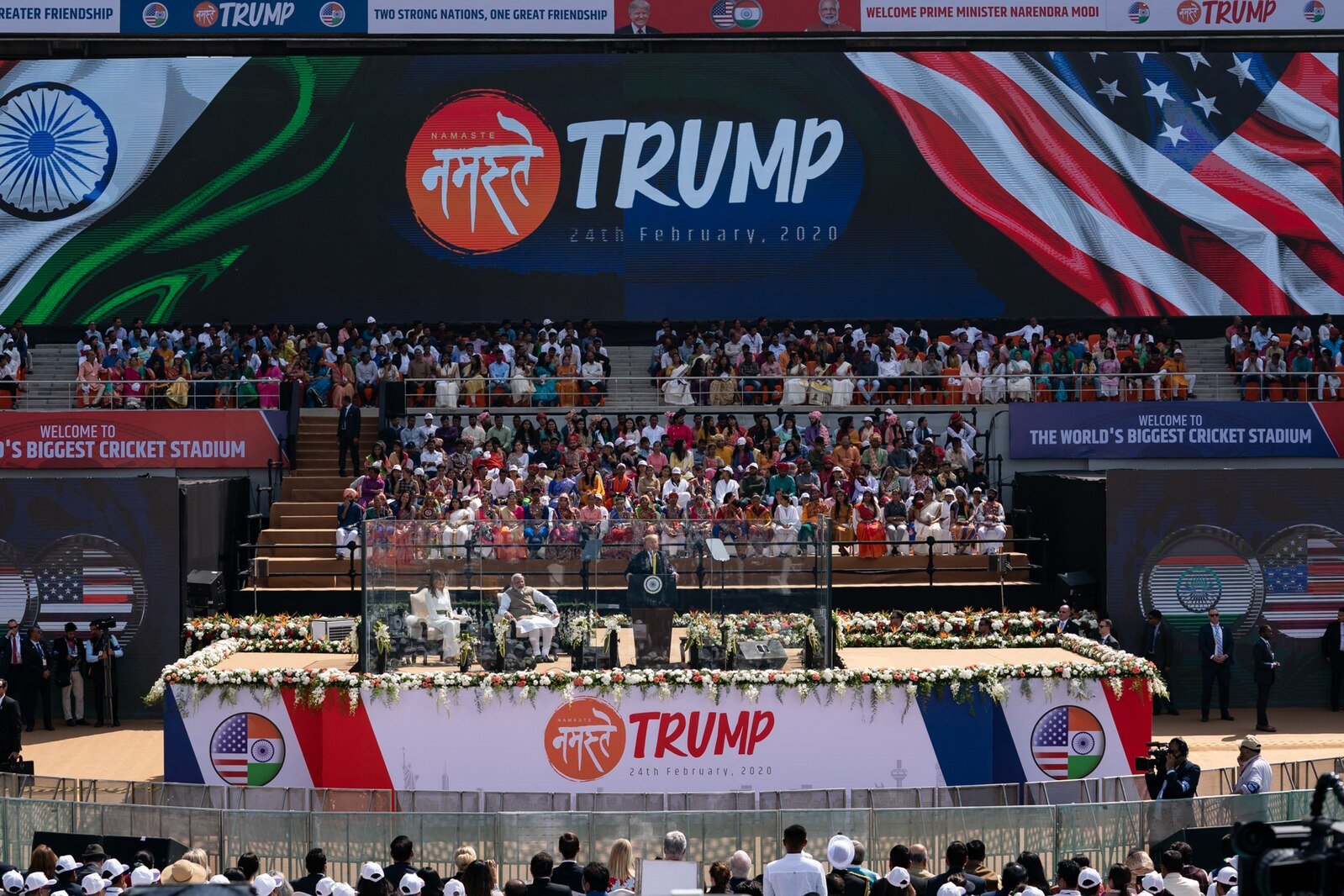Photograph Source: The White House – Public Domain
What can be said about President Donald Trump’s attempt to exercise a “tariff-war” against countries which do not comply with his terms? This economic policy of his has been described by some as his bargaining-tactic, which perhaps is equivalent to compelling others to bow to his terms. But, what if all don’t give it much importance? What if they choose not to pay the attention to higher tariffs on certain goods, Trump has threatened to impose, which are imported from them? From his angle, Trump is perhaps over-confident that targeted countries, including Russia and China, have no other option but to go by what he says. US has threatened sanctions against Russia if it does not agree to a ceasefire with Ukraine. In other words, Trump appears adamant about an end to Ukraine-war. US has imposed additional 25% on India for not agreeing to stop import of Russian oil. This increases total duties of Indian goods imported to US to 50%.
Simply speaking, increase in tariff of whatever is imported to US also increases prices of the same for American investors, market, consumers and for whoever the goods bear importance within US. Slowly but definitely, it’s inflationary impact is likely to become more prominent in United States. Irrespective of whatever be logic deciding Trump’s tariff, he is apparently being over-confident by assuming that only his voice will echo, heard and then accepted by targeted countries. Regarding Ukraine-crisis, if President Trump is so concerned about continuity of a conflict, why has he chosen not to taken a similar stand on Gaza-genocide, prospects of which being heeded are stronger? The explanation is simple. In this case, Israel is too dependent on United States. If and when, Washington does not take a tough stand, Tel Aviv will have no option but to actually yield to ceasefire and stop “eliminating” Palestinians. The same cannot be said about Russia.
It is possible, at a point, US gave greater importance to continuity of Ukraine-crisis, considering it as a means to weaken Russia. In other words, Ukraine is apparently being used as a pawn between US and Russia. Diplomatically, Russia is wise enough to consider offer of dialogue and so forth on the issue. But that it will yield to US on Trump’s terms may be viewed as hardly possible. Russia still remains a strong and key power. It has considerable support and entertains good economic ties with a number of nations, which are least likely to be affected by sanctions imposed upon it by US.
India certainly has had good ties with US but New Delhi is not solely, exclusively and/or totally dependent on primarily US. It has maintained strong ties with Russia which it cannot afford to risk at “command” of US. Why should it? United States’ hard stand against Russia on any issue cannot compel all other countries to pursue the same path, diplomatically and economically. India has the sovereignty and independence and one may say can afford to chalk its own foreign policies. This is not the age of colonialism, neo-colonialism or neo-imperialism, when US or any power can dictate terms, in name of tariff-war, sanctions or any other strategy, to other countries.
But yes, it cannot be ignored, quite a few countries seem to have no option but to comply with what Trump is directing them to. Certainly, they also appear to caught in a fix given they are not too sure of what the next stand of US President could be. Their dependence, rather over-dependence on US, seems to have left them with extremely limited options. They appear to be caught in a dependency-trap.
Yes, despite a few discounts for some countries, tariff-war is likely to spell economic problems for all, with India and Brazil being among those severely affected. As indicated earlier, it is least likely to spare Americans also. But this is just a part of the game, Trump is playing to gain the upper edge against Russia. His logic is that purchase of oil from Russia is equivalent to giving funds to aggressive Russia and aiding it against Ukraine. If Trump was seriously concerned about ending conflicts, as he said at time of assuming office, the situation would have been different in Israel-occupied Palestine at present.
Trump is probably hopeful that his tariff-ploy will prompt Russian allies, including BRICS-members to his side and isolate Russia. His aim is to apparently spell economic as well as diplomatic blows for Russia. Chances of his having his way in this game at present seem quite limited. On the contrary, the impact seems to be contrary to what was probably speculated upon by Trump. Signs of Russia being isolated are hardly visible. His tariff-war appears to have prompted countries, who are closer to Russia than to USA- including BRICS member to consider closer ties among themselves. The message is simple. They are wise enough not to get entangled in Trump’s dependency-trap, the manner in which United States’ western allies have got caught in it. What the world is witnessing at present is not Trump’s “attempt” to convince Russia to a ceasefire or his tariff-war against those not yielding to his demands, particularly that of not buying oil from Russia, but another ploy. His predecessor Joe Biden was hopeful of weakening Russia by continuity of Ukraine-war. Trump is apparently not. He is thus trying his hand at tariff-war with the same objective. He hasn’t probably given much importance to considering options of his strategy not being acceptable to quite a few countries. More than probably he bargained for. Now, it’s to be watched, who has the last laugh. Perhaps, nobody, certainly not Trump!
The post The Other Side of Trump’s Tariff-War & India’s Response! appeared first on CounterPunch.org.
From CounterPunch.org via this RSS feed






